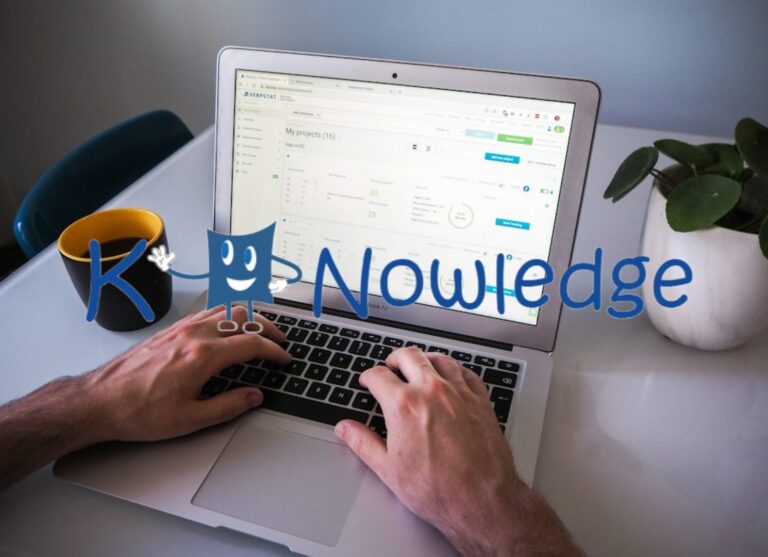How to Start Successful Online Business

In the digital era, starting successful online business offers an exciting opportunity for entrepreneurs to reach a global audience and operate with comparatively lower initial costs than traditional brick-and-mortar establishments.
This guide will explore the essential steps to start successful online business.
Important note + disclaimer: What was mentioned in this article is not considered as business advice or individual business guidance. Rather, it is some simple information that “may” benefit some people at some points. Therefore, if you are looking for guidance advice, we advise you to go to Specialists and experts in the field.
Start Successful Online Business vs Start Successful Offline Business
In today’s digital age, the debate between starting an online versus an offline business is increasingly relevant. Each type of business has its unique set of advantages and challenges.
When considering the to start successful online business, it’s important to look at why an online business might be advantageous and how to successfully launch one.
Advantages of Online Businesses
- Lower Startup Costs: Online businesses typically require less capital to start compared to their offline counterparts. There’s no need for a physical storefront, which eliminates expenses like rent, utilities, and larger staff.
- Wider Reach: The internet allows you to reach a global audience. An online store can sell to anyone with internet access, removing the geographical limitations faced by offline businesses.
- Scalability: Digital products or services can often be scaled more easily. For instance, once a course or software is developed, it can be sold to an unlimited number of customers without much increase in cost.
- Flexibility: Running an online business often provides more flexibility in terms of hours and location. Entrepreneurs can operate anywhere they have an internet connection.
- Advanced Analytics: Online tools provide comprehensive analytics that allows business owners to understand their customer behaviors, optimize their marketing strategies, and improve their product offerings based on real data.
Advantages of Offline Businesses
- Personal Interaction: For some sectors, especially those involving high-value goods or personalized services, direct interaction can build trust and customer loyalty more effectively than online interactions.
- Immediate Product Access: Offline businesses can provide immediate gratification to customers who prefer to see, touch, or use the product immediately after purchase.
- Local Impact: Offline businesses can become a staple of a local community, fostering local economy and creating direct relationships with customers.
Related Article: How to Launch Your Business
How to Start Successful Online Business
here are Steps To launch a new business:
- Find a Niche: A successful online business starts with identifying a niche market with sufficient demand but not oversaturated with competition. This involves thorough market research and understanding customer needs.
- Build a Robust Platform: Whether it’s an ecommerce website, a professional blog, or a social media channel, the platform should be user-friendly, visually appealing, and optimized for mobile devices.
- SEO and Content Marketing: Optimizing your website for search engines (SEO) and providing valuable content are crucial for attracting and retaining customers. This also involves leveraging keywords effectively to increase visibility.
- Use of Social Media: Social media platforms can be powerful tools for building brand awareness, engaging with customers, and driving traffic to your website.
- Streamline the Customer Experience: Ensure that the purchasing process is as seamless as possible. This includes having an easy-to-navigate website, a simple checkout process, and reliable customer service.
- Test and Iterate: Use analytics to test different approaches in your marketing, product design, and sales strategies. Use customer feedback and data to iterate and improve your offerings continuously.
For those looking to start successful online business the previous step can help you with that.

How to Make an Effective Business Plan to Enhance You Successes
Before you start successful online business, you must now how to make an effective business plan. A well-constructed business plan not only helps in securing funding but also serves as a roadmap to guide your business operations and strategy.
Here’s a step-by-step guide on how to craft an effective business plan:
Executive Summary
The executive summary provides a snapshot of your business and outlines your objectives. It comes first in your plan and should ideally be one to two pages. Most importantly, it should capture the reader’s attention and make them want to learn more about the company. Include:
Your business concept: what your business does, the main products or services, and who your customers are.
Business goals and vision: what are you aiming to achieve in the short and long term?
Basic information about your team, location, and company history, if existing.
Business Description
Provide more detailed information about your company. Explain the type of business you are starting, the industry, and any relevant history if you are a startup that is currently operating. Detail your mission statement, the company’s objectives, and how your services or products fulfill a need or solve a problem.
Market Analysis
This section should demonstrate your knowledge about the specific sector you are in and the attractiveness of the market. Key components include:
- An industry overview.
- Target market analysis: Demographics, size, growth potential, and trends.
- Competitive Analysis: Assess the key players in your market, pinpointing their strengths and weaknesses.
- Expected market share: How much of the market you believe you can capture and how.
Organization and Management
Describe the organizational structure of your business. Identify who is going to manage what part of the business. Include:
- Legal structure: Are you an S-corp, C-corp, LLC, or sole proprietor?
- Profiles of your management team: Highlight their experiences and roles.
- Roles and responsibilities of team members.
Products or Services
Explain what you are selling. In this section, go into detail about the products or services you offer, how they benefit your customers, and the product lifecycle. Mention any intellectual property you might have, such as patents, copyrights, or trademarks.
Marketing and Sales Strategy
Outline your strategies for attracting and retaining customers. This section should include:
- How you will grow your business.
- How you will promote your services.
- The sales process or cycles.
Funding Requirements
If you are seeking external funding, this section is crucial. Specify the amount of funding you need over the next five years and how you intend to use it. Provide a detailed description of how the funds will help grow your business and what kind of funding you are seeking (loans, equity, etc.).
Financial Projections
Support your funding request by including detailed financial projections to demonstrate to lenders or investors that your business will be profitable. Provide:
- An income statement that forecasts revenue, expenses, and profits.
- Cash flow projections.
- Balance sheet.
- Provide realistic assumptions that back up your statements.
Related Article: Tips for a Successful Small Business
Conclusion
Start successful online business involves a blend of strategic planning, understanding of digital tools, and continuous adaptation to the ever-changing online landscape.
The journey begins with a comprehensive business plan that clearly outlines your business concept, market analysis, organizational structure, products or services, and your marketing and sales strategy.






